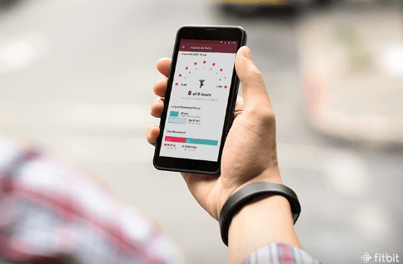Increase Workplace Productivity by Building Better Habits and Routines
When you’re feeling less than productive your work day can drag on for a long time. On other days, time flies and you have a long list of things you’re hoping to accomplish, but only manage to work through a couple of them. Setting yourself up for success with a few workplace habits and routines can make the work day feel more enjoyable. It also allows you to be more productive overall.
1. Check your emails infrequently.
Disconnecting from what might be an important line of contact may seem like a bad habit, but stepping away from email can increase your productivity. Doing so removes your constant need for, and distraction of, refreshing your email every 10 minutes. Anticipating an important message is one thing, but checking “just to see” is a time waste.
Here’s a tip: Set designated times throughout the day (8am, noon, 3pm) to check your email, and take the time to work through all your messages then. This way you’ll feel like you have a clean slate of notifications before jumping into your next project.
2. Take 5.
Fitbit released a setting in one of their latest updates that encourages users to get up and move throughout the day, rather than getting all of their steps for the day at a late night gym session. This setting detects if you’ve been active each hour during the parameters you choose to set.
Whether you’re a Fitbit user or not, you should get up every hour to stretch your legs and take your eyes off that bright computer screen. This resets your brain from feeling overwhelmed and helps you focus on the task at hand when you return.
3. Drink water, not caffeine.
According to Harvard Medical School, the benefits of drinking water for your physical health are vital, but drinking water instead of sugary alternatives has many benefits to surviving your work day. Drinking water throughout the day increases energy and relieves fatigue and headaches caused by eye dehydration from staring at your screens all day (yes, eyes can get dehydrated, so blink more!).
Hydrating also requires you get up from your desk for bathroom breaks and to refill your water bottle, ensuring you meet the previously mentioned time for taking mental breaks.
4. Plan your day.
Now that you’ve hydrated, are ignoring those email notifications and did your laps around the conference table, it’s important to tackle the task at hand. Schedule your day from the moment you arrive in the office to the time you punch out on the clock. This helps you stay focused on each individual task and dedicate the appropriate amount to completing it.
Build out your daily plan/to do list by:
- Scheduling the harder tasks first to get them out of the way
- Including enough time for meetings
- Adding a few minutes of padding between tasks to ensure that if you run over, you can still check all the boxes at the end of the day
- Saving mundane tasks for the end of the day when you know you can whip right through them
Once your list is complete, work the list. Don’t think twice, just do it. On days when you don’t have a lot of meetings it’s nice to hunker down and work through your every growing pile of to-dos.
Check each item off as you complete them. This will give you a sense of accomplishment, as well as allow you to remove any thought of the task from your brain. This prevents you from feeling overwhelmed by 10 things at once, and allows you to focus on one task in the moment.
5. Go home empty handed.
When you can, go home empty handed. This can mean:
- Not bringing your physical work computer home with you
- Not bringing the thoughts of work to-dos home with you
- Turning off work email and other notifications on your phone (especially if it’s not a work phone)
When you leave work, leave knowing that by implementing the previous habits, you’ve tackled the day to its fullest and can relax and unwind.
Avoid distractions, hydrate, make moves and plan. These simple habits and daily routines can help you produce your best work and in record time. By taking care of yourself, mentally and physically, you maximize your potential in the workplace and accomplish more of what you’re hoping to in a single day.
What are some of your most useful workplace habits? How do they help you get through the work day and maximize your productivity? Let me know in the comments below!



